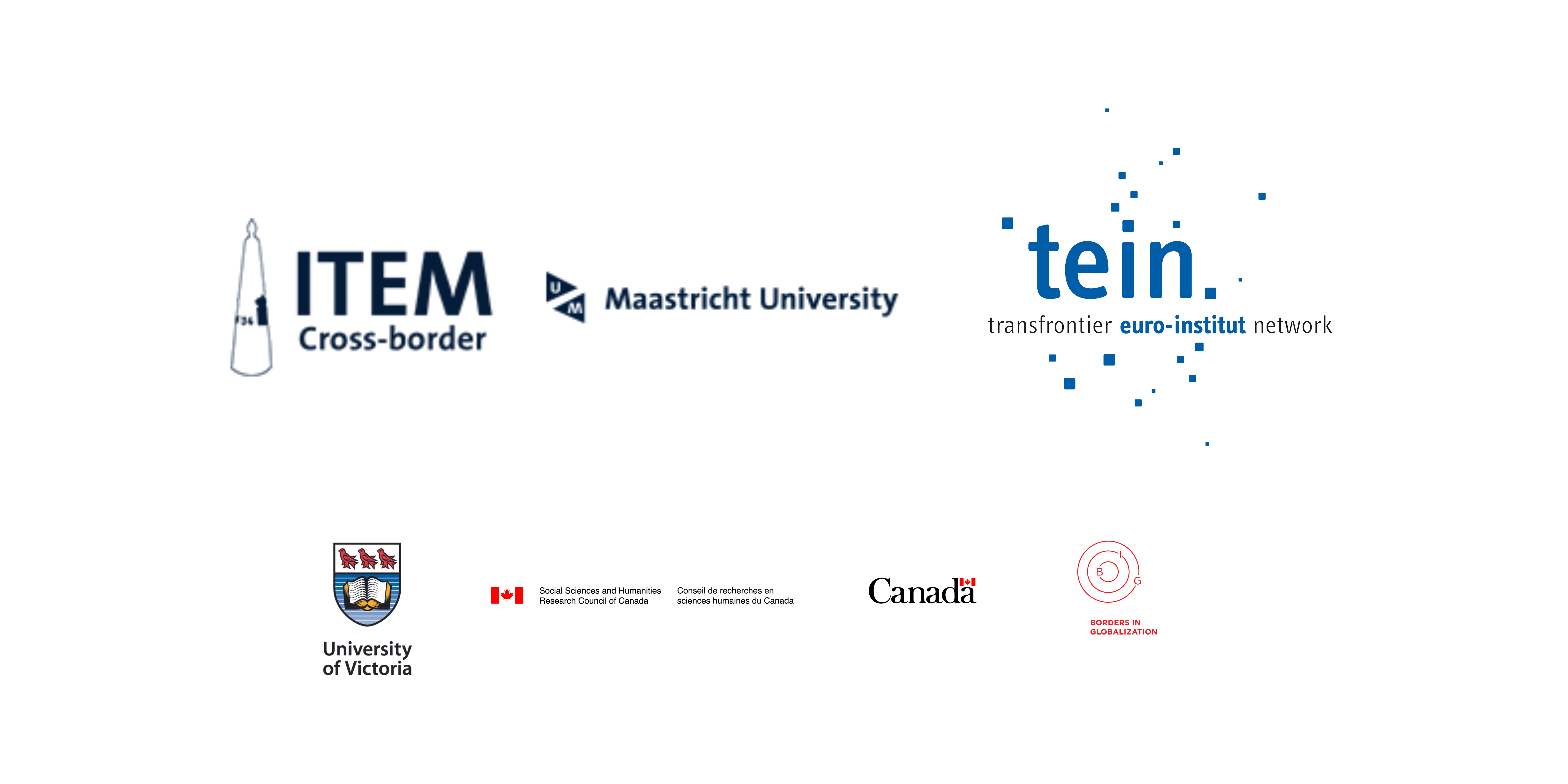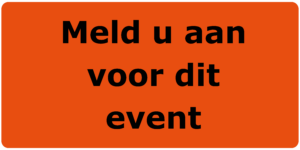ITEM / TEIN jaarconferentie 2024

Event Details
Deze 2-daagse conferentie (mede-georganiseerd door het Instituut voor Transnationale en Euregionale grensoverschrijdende samenwerking en Mobiliteit (ITEM) en het Transfrontier Euro-Institute Network (TEIN)) behandelt de praktische uitdagingen en vooruitzichten van toekomstige
Event Details
Deze 2-daagse conferentie (mede-georganiseerd door het Instituut voor Transnationale en Euregionale grensoverschrijdende samenwerking en Mobiliteit (ITEM) en het Transfrontier Euro-Institute Network (TEIN)) behandelt de praktische uitdagingen en vooruitzichten van toekomstige grensoverschrijdende samenwerking en mobiliteit en bevordert debatten en beleidsvooruitzichten rond en voorbij het concept van horizontale integratie.
Deadline voor aanmelden: 12-9-2024 | 23.59 u
Over het congres
Dagelijks de grens oversteken maakt deel uit van de leefwereld van miljoenen Europeanen. Of het nu om werk, studie, winkelen of vrije tijd gaat, inwoners van grensregio’s reizen regelmatig heen en weer tussen het ene en het andere land. In onze grensoverschrijdende mobiliteit ervaren we niet alleen de geneugten van de vrijheid om te reizen in de EU, maar hebben we in veel opzichten ook nog steeds te maken met administratieve en coöperatieve beperkingen en problematische verschillen in sociale zekerheid, belastingen, gezondheidssystemen, erkenning van diploma’s, misdaadbestrijding, grensoverschrijdend ondernemerschap, studeren, duurzaamheid, energietransformatie enz. enz.
Sinds Maastricht 1992 hebben we een lange weg afgelegd in het bevorderen van samenwerking en mobiliteit in grensoverschrijdende regio’s, maar grensoverschrijdende samenwerking en mobiliteit is gemakkelijker gezegd dan gedaan. We hebben (nog) niet alle technische, wettelijke en culturele obstakels uit de weg geruimd voor een grenzeloos proces van Europese integratie. Hoe kunnen we vooruitgang boeken naar het volgende niveau van Europese integratie in grensoverschrijdende regio’s? Welke innovaties in grensoverschrijdende bestuursmechanismen hebben we nodig?
Het Europese integratiediscours is lange tijd gedomineerd door het concept van verticale integratie, dat wil zeggen de relatie tussen de EU en haar lidstaten. Horizontale integratie impliceert een proces tussen gelijksoortige publieke en private autoriteiten over de staatsgrenzen heen op lager (regionaal en gemeentelijk) bestuursniveau, evenals interacties tussen mensen.
Voorlopig programma
Donderdag 26 september 2024
| 09:00 – 17:00 | Registration |
| 09:30 – 10:05 | Opening
Welcome remarks by hosts (TEIN, BIG, ITEM) |
| 10:05 – 10:30 | First keynote address
DG REGIO |
| 10:30 – 11:30 | Thematic plenary session: The Future of Cohesion in Cross-border Regions
Moderator: Martin Unfried Het panel bespreekt de toekomstige strategie en financieringsinstrumenten voor het cohesiebeleid met de nadruk op grensoverschrijdende regio’s. Het panel zal met name de toekomst van Interreg-programma’s bespreken met betrekking tot de huidige tekortkomingen en sterke punten en de rol van andere EU-fondsen. Beoogde panelleden: |
| 11:30 – 11:45 | Coffee break |
| 11:45 – 13:15 | Plenary paper presentation – TEIN Cross-Border Impact Assessment: Facilitating Cross-Border Solutions in the European border regions – the revised ECBM – An instrument for Horizontally integrated Europe?
A new instrument has been proposed to boost cross-border cooperation in Europe and to foster development in border regions: Facilitating Cross-Border Solutions. This panel will present insights from different border regions across Europe and assess what the impact would be. Insights from border regions in the Benelux territory, Germany, Poland, Hungary, Slovenia, France and Austria by ITEM, CESCI, WSB, Euro-Institut, Faculty of Public Administration – University of Ljubljana, Viadrina Center B/ORDERS IN MOTION, Carinthia University of Applied Sciences. |
| 13:15 – 14:15 | Lunch break |
| 14:15 – 15:15 | Thematic plenary session:
Cross-border cooperation: structural inhibitors and functional enablers Moderator: Math Noortmann In this panel we discuss aspects that facilitate or impede cross-border cooperation. The panellist in this panel address (inter alia) such dogmas and sacred cows as national sovereignty and competitive advantage. But the panel also exhibit sectoral success in the fields of administration, education, entrepreneurship and crime control.
|
| 15:25 – 17:10 | Plenary paper presentation – Attitudes on European Integration in Border Regions in the light of the European Parliament Elections 2024
1. Cross-border regions as laboratories for European integration in the perspective of the European elections 2024: a comparison of the Franco-German and Franco-Belgian borderlands – prof. dr. Bernard Reitel (University of Artois) 2. European narratives at the Franco-German border (Upper Rhine and Greater Region) in the light of European Elections 2024 – prof. dr. Birte Wassenberg (Sciences Po Strasbourg) 3. What future in terms of cooperation for a pioneering cross-border region? A study at the Franco-Walloon border. – prof. dr. Fabienne Leloup (UCLouvain) 4. The cross-border effects in political plans for European Parliament Elections 2024: quo vadis? – Martin Unfried (ITEM) Discussion on future of border regions in light of the Elections. |
| 17:10 – 17:15 | Closing of the day |
| 17:30 – 19:30 | Welcome Reception (hosted by Province of Limburg) & speech of Governor Roemer (Governor Province of Limburg & Chair of the Euregio Meuse-Rhine) (tbc) |
Vrijdag 27 september 2024
| 09:00 – 13:00 | Registration |
| 09:30 – 09:45 | Welcome Remarks (UM) |
| 09:45 – 10:15 | Second keynote address
Prof. dr. Tobias Chilla, Friedrich-Alexander-Universität (tbc) |
| 10:30 – 12:00 | Parallel paper session 1A Cross-border regions in national and European policies
1. Towards de-territorialised cross-border cooperation: Exceptional rules for cross-border situations without territorial differentiation criteria – Prof. dr. Michael Frey (HS Kehl) 2. A self-centered approach of EU instruments: Active subsidiarity in cross-border cooperation – dr. Jean-Francois Clouzet (Savoie Mont-Blanc University) & dr. Tamara Espineira-Guirao (Sciences Po Rennes) 3. Evaluation and the Future of Cross-border Cooperation in Hungary – dr. Zsuzsanna Fejes (University of Public Services) 4. Beyond the current toolbox of the Benelux Union: practices, experiences and foresight – dr. Loth van der Auwenmeulen (UHasselt) (tbc) |
| Parallel paper session 1B Cross-Border Integration and Cooperation from Lingual and Cultural perspectives
1. Cross-border Cooperation and the Maintenance and Revitalization of Minority Languages – dr. Jordi Cicres (University of Girona) 2. Multilinguism in the Euregio Meuse-Rhine – dr. Daan Hovens (ITEM; tbc) 3. Adapting new horizons: Unravelling individual readiness in cross-border collaboration within the Dutch-German Borderland – Max Klöters (Fontys Venlo) 4. Measuring the cross-border integration level through the cross-border cultural powers. The case studies of the Basque, Flemish, and Upper Rhine cross-border regions in the EU – dr. Ahmed Bakry (Kassel University) |
|
| 12:00 – 13:00 | Lunch break |
| 12:30 – 12:50 | Book presentation |
| 13:00 – 14:15 | Plenary Session Resilient Cross-border Cooperation in times of Crisis
panelists: 1. Cross-border Cooperation & Crisis Management: Results related to Floods and Pandemic – Pim Mertens (ITEM) 2. Managing cross-border projects towards more resilient cooperation in borderlands. The post-pandemic perspective. – Prof. dr. Joanna Kurowska-Pysz (AWSB) 3. Strengthening the Resilience of EU Border Regions – Ruslan Zhechkov (Technopolis) (tbc). 4. Marian Ramakers, Crisis Management from a practitioner’s view |
| 14:30 – 15:45 | Parallel paper session 2A Cross-border mobility: Labour and Business
1. Pooling Cross-border Human Resources in the Healthcare Sector – Caroline Fischer & Le Anh Long (UTwente) 2. Learning organizations in a cross-border context: What are the leadership challenges of cross-border business development in the Dutch-German borderland? – Oskar J. Bronsgeest & dr. Sofie Moresi (Fontys Venlo) 3. Grasping crises as a whole – About current challenges and perspectives in light of the labour market transformation in the Upper Rhine Region – Margot Bonnafous & Fabienne Schimek (Euro-Institut) |
| Parallel paper session 2B Cross-border education
1. Exploring the Value of Cross-Border Business Curricula: A Case Study of the Collaborative Design on the Slovenian-Italian Border for MA Level Program in Intercultural Management – dr. Svetlana Buko (SASS FUDS) & dr. Giustina Selvelli (University of Ljubljana) 2. Towards a European degree for cross-border mobility? – Susanne Sivonen (ITEM) 3. Internationalisation in an euregional context |
|
| 15:30 – 16:00 | 3rd (Closing) keynote address
Prof. dr. Liesbeth Hooghe, University of North Carolina at Chapel (tbc) |
| 16:00 – 16:30 | Conclusions and closure (ITEM/TEIN) |

Time
26 (Thursday) 09:00 - 27 (Friday) 16:15
Location
Maastricht, the Netherlands


